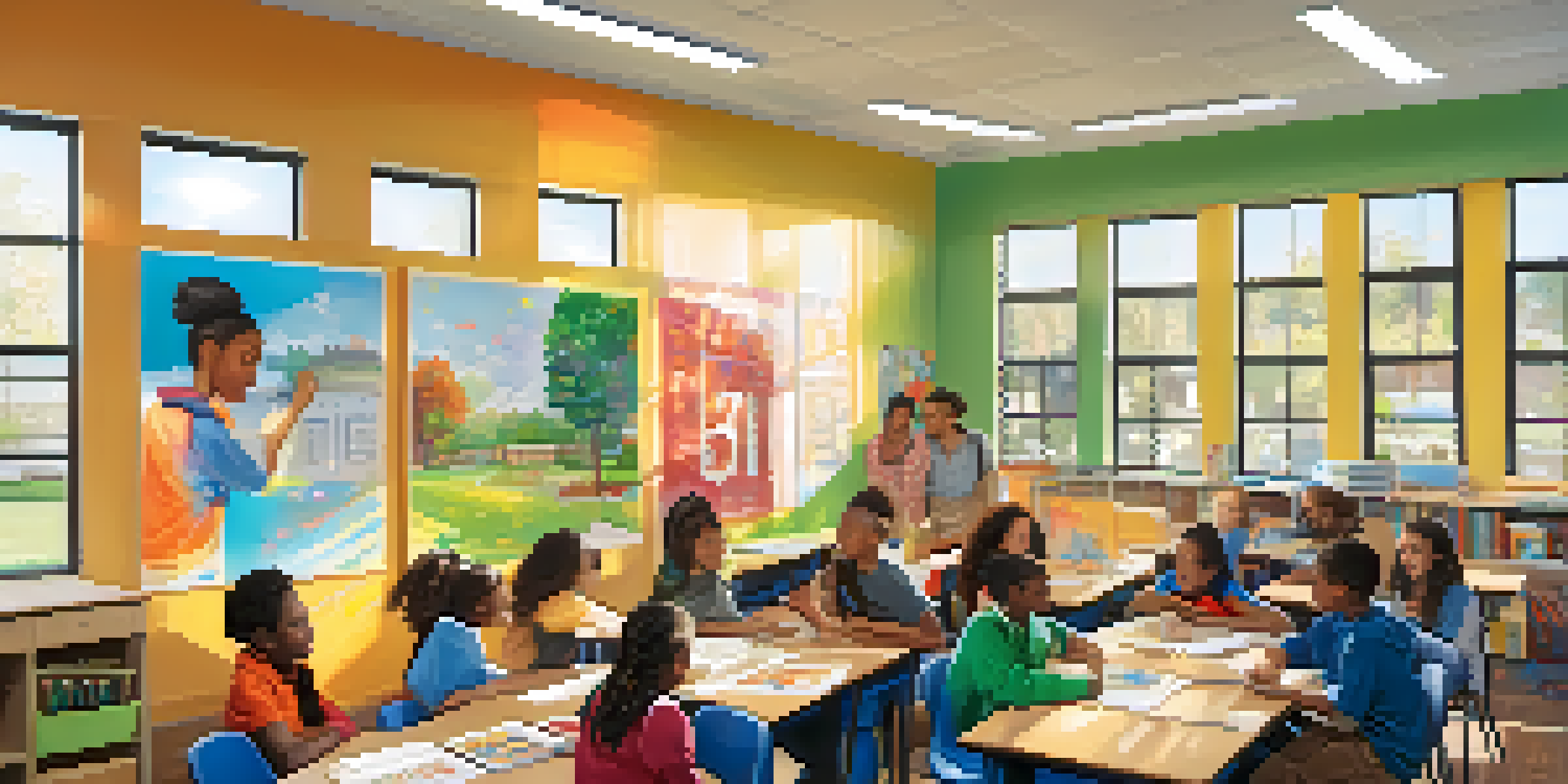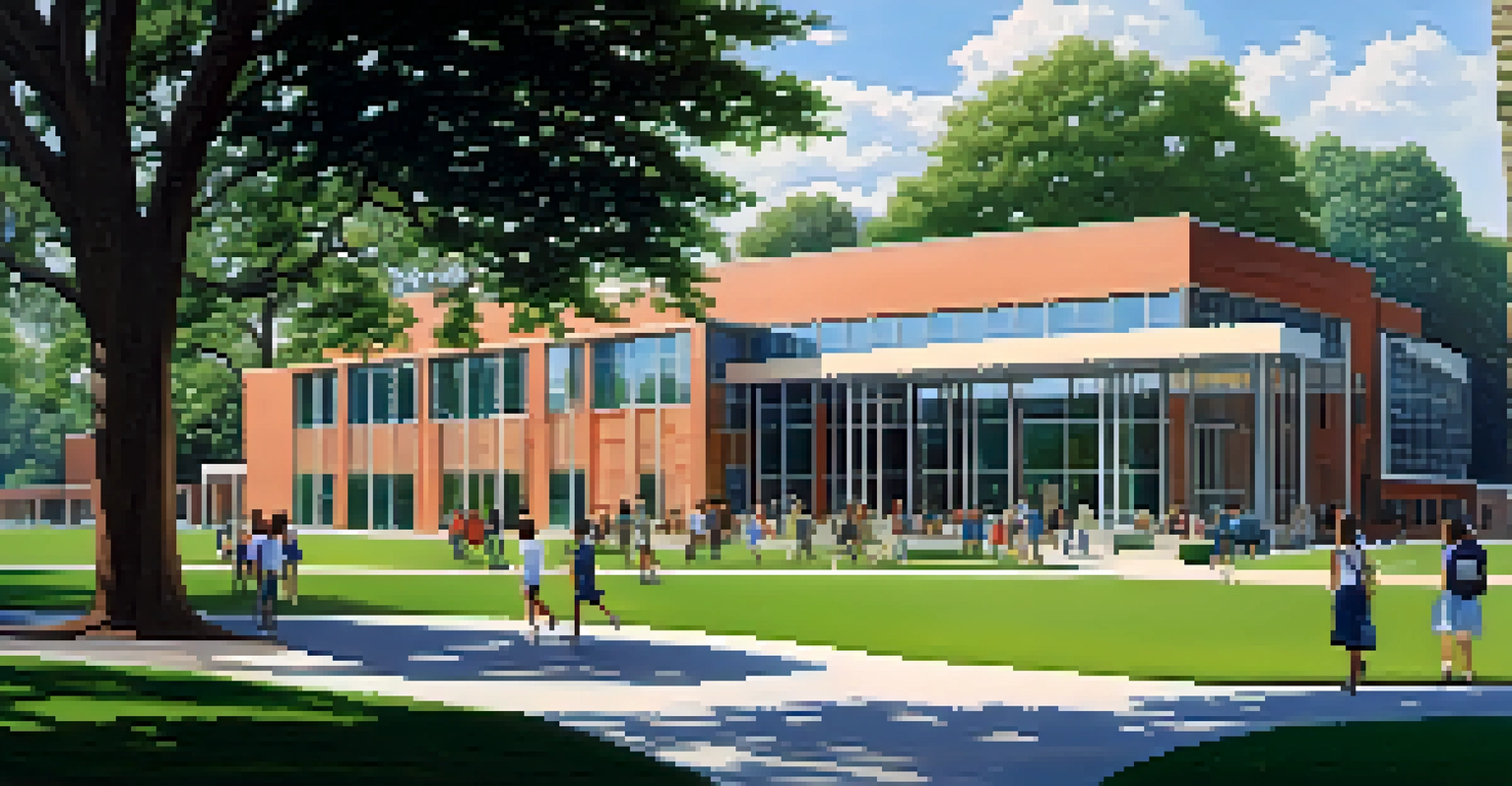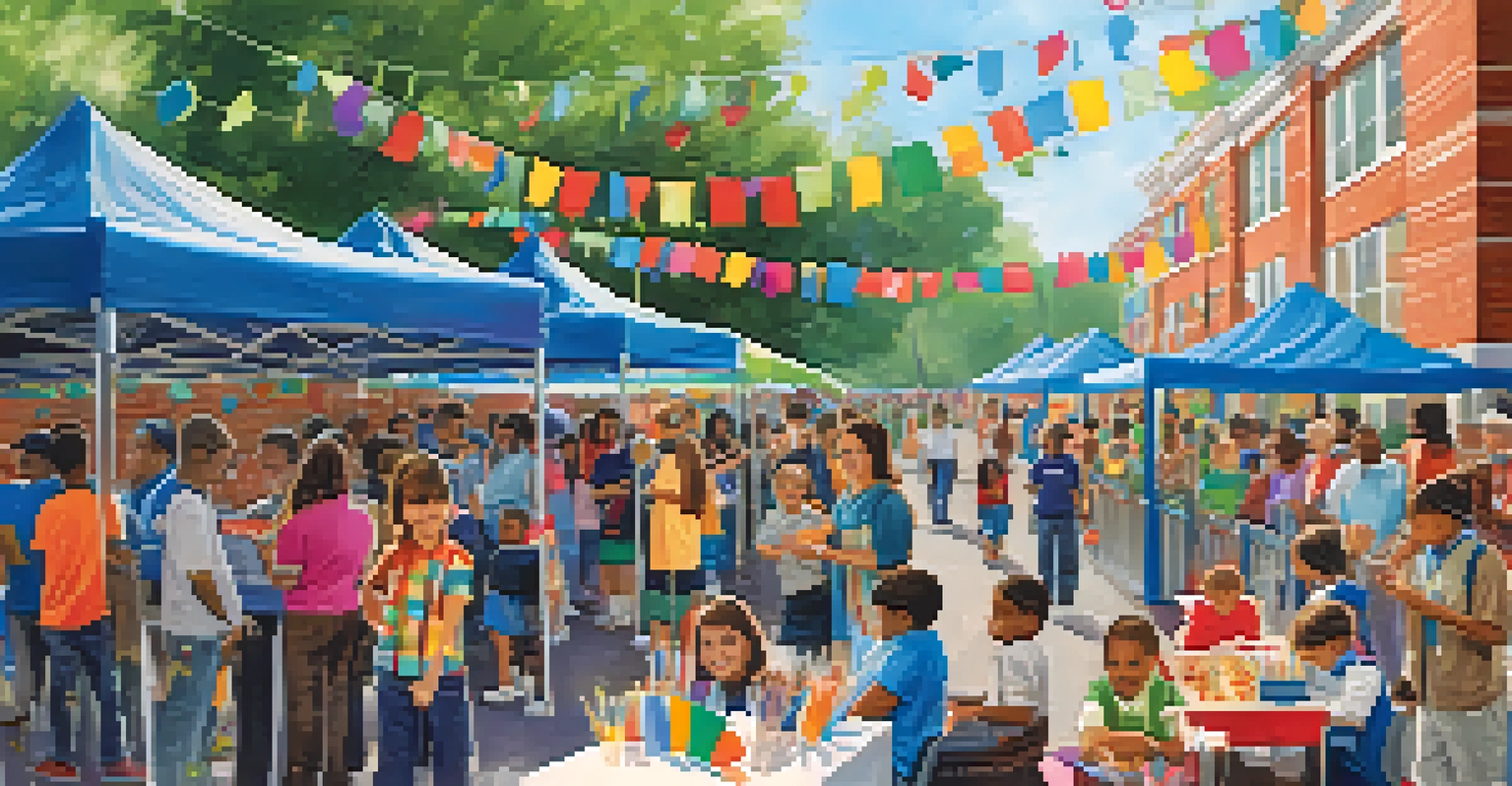Public vs. Private Schools: Educational Choices in Charlotte

Understanding Public Schools in Charlotte
Public schools in Charlotte are funded by local, state, and federal taxes, making them accessible to all families in the district. They are governed by school boards that set policies and curricula to meet educational standards. One advantage of public schools is the diverse student body, which reflects the community's demographics and offers a broad perspective on social issues.
Education is the most powerful weapon which you can use to change the world.
Another plus is the variety of programs and extracurricular activities available, from advanced placement courses to sports teams. Public schools often provide resources for special education and support services, ensuring that all students receive the help they need. This inclusivity can create a vibrant school culture where students learn from one another's experiences.
However, public schools can face challenges such as overcrowding and limited funding, which may affect class sizes and available resources. Families often consider these factors when choosing a school. Overall, public education in Charlotte provides a valuable option for families looking for quality education without the burden of tuition.
Exploring Private Schools in Charlotte
Private schools in Charlotte operate independently from the public school system and are funded through tuition fees, donations, and sometimes religious organizations. This independence allows them to create specialized curricula and smaller class sizes, which can lead to more personalized attention for each student. Many private schools also emphasize a particular educational philosophy or religious beliefs, giving parents additional options based on their values.

One significant advantage of private schools is often their resources and facilities, which can be superior due to the additional funding from tuition. These schools may offer a wide range of advanced courses, arts programs, and unique extracurricular activities that cater to student interests. The smaller student-to-teacher ratio also allows for more individualized instruction and support.
Public Schools: Diverse and Inclusive
Public schools in Charlotte offer a diverse environment that reflects community demographics and promotes inclusivity.
However, the cost of private education can be a barrier for many families, as tuition can vary widely, and financial aid options may not cover all expenses. Families must weigh the benefits of a private education against the financial commitment. For those who can afford it, private schools can offer a tailored educational experience that aligns closely with their child's needs.
Key Differences Between Public and Private Schools
When comparing public and private schools, one of the most significant differences lies in funding and governance. Public schools rely on taxpayer money and are subject to state regulations, while private schools have more autonomy to create their own policies. This means that private institutions can often adapt more quickly to educational trends and implement unique programs that meet specific student needs.
The function of education is to teach one to think intensively and to think critically. Intelligence plus character - that is the goal of true education.
Another notable difference is the admissions process. Public schools must accept all students from their designated districts, promoting inclusivity, while private schools can select their students based on various criteria, such as entrance exams or interviews. This selective process can lead to a more homogeneous student body, which may be appealing to some families.
Lastly, the curriculum can vary greatly. Public schools must adhere to state educational standards, while private schools have the flexibility to develop their own. This can result in a more diverse educational experience in private institutions, but it may also mean less consistency in educational quality across different private schools.
Considerations for Choosing a School in Charlotte
Choosing between public and private schools in Charlotte requires careful consideration of various factors. Parents often begin by evaluating their child's unique learning style, strengths, and interests. Understanding whether a child thrives in a structured environment typical of public schools or in a more flexible setting like many private schools can inform this decision.
Location is another crucial aspect to consider. Charlotte boasts a range of schools across different neighborhoods, and commuting times may vary. Parents might prioritize schools that are close to home or work, enhancing convenience and community involvement.
Private Schools: Personalized Learning
Private schools can provide customized curricula and smaller class sizes, allowing for more individualized attention for students.
Lastly, families should also take into account the school's reputation, academic performance, and available resources. Visiting schools, meeting with teachers, and talking to other parents can provide valuable insights into the school environment. Ultimately, the best choice hinges on what aligns with the family's values and the child's educational needs.
The Role of Test Scores in School Choice
Standardized test scores often play a critical role in the school choice conversation, as they provide measurable data on student performance. Public schools are required to report these scores, which can help parents gauge how well a school is performing academically. However, it's essential to remember that test scores are just one piece of the puzzle and might not reflect the full quality of education.
In contrast, private schools may not be required to report standardized test scores, which can make it challenging for parents to compare academic performance. However, many private institutions do have strong reputations in this area and may offer specialized programs that enhance student learning. Families should investigate the school's overall approach to education, including how they support students beyond just test preparation.
Ultimately, while test scores can provide insights into a school's academic standing, they shouldn't be the sole deciding factor. A well-rounded education encompasses much more than what is measured on a standardized test, including social skills, creativity, and emotional growth.
Community Involvement in Schools
Community involvement can significantly enhance the educational experience in both public and private schools. Public schools often benefit from strong community ties, as they are typically embedded within neighborhoods. This connection can lead to increased parental involvement, volunteer opportunities, and partnerships with local organizations that enrich the school environment.
Private schools, on the other hand, often foster a close-knit community due to their smaller size. This can create a strong sense of belonging among students and families, leading to more active participation in school events and activities. Many private schools encourage parents to be involved not only in their children's education but also in broader school initiatives.
Choosing the Right School Matters
Selecting a school in Charlotte involves considering your child's learning style, school reputation, and community involvement.
Regardless of school type, community involvement plays a vital role in creating a supportive atmosphere for students. Engaged families can help shape school policies, enhance programs, and provide resources that benefit all students, fostering a collaborative approach to education.
Final Thoughts on School Choices in Charlotte
Choosing the right school for your child in Charlotte is a significant decision that can impact their educational journey and personal growth. Both public and private schools offer unique advantages and challenges, making it essential for families to evaluate their options based on their values, needs, and circumstances. Taking the time to research and visit schools can provide clarity in this process.
Ultimately, the best choice is one that aligns with your child's learning style, interests, and the family's values. Whether you opt for a public or private school, fostering a supportive home environment and maintaining open communication with teachers can enhance your child's educational experience.

Remember, the goal is to find a supportive learning environment where your child can thrive. Embrace the journey of school selection as an opportunity to explore and discover what will best suit your child's unique needs in Charlotte's diverse educational landscape.